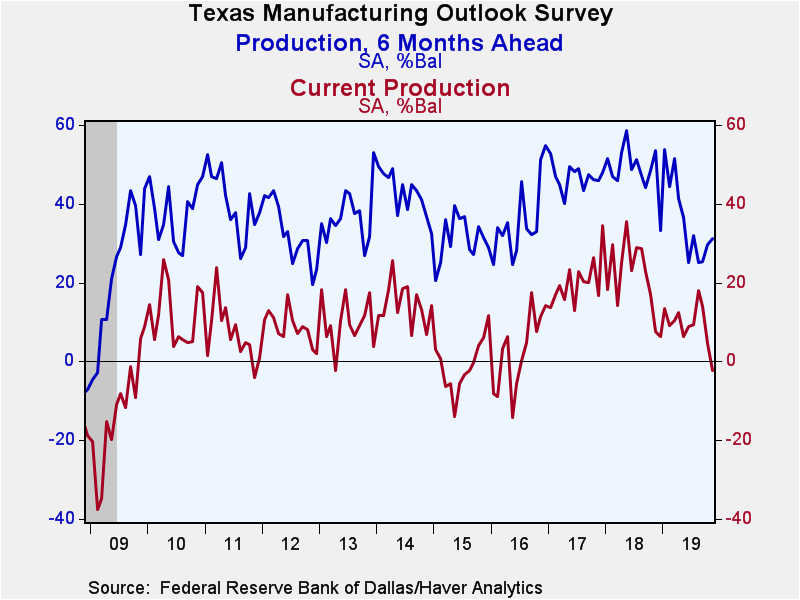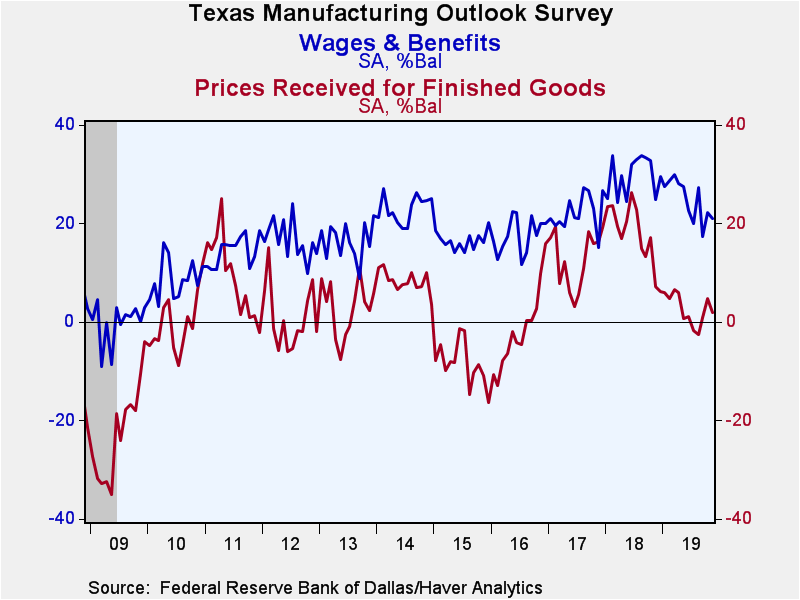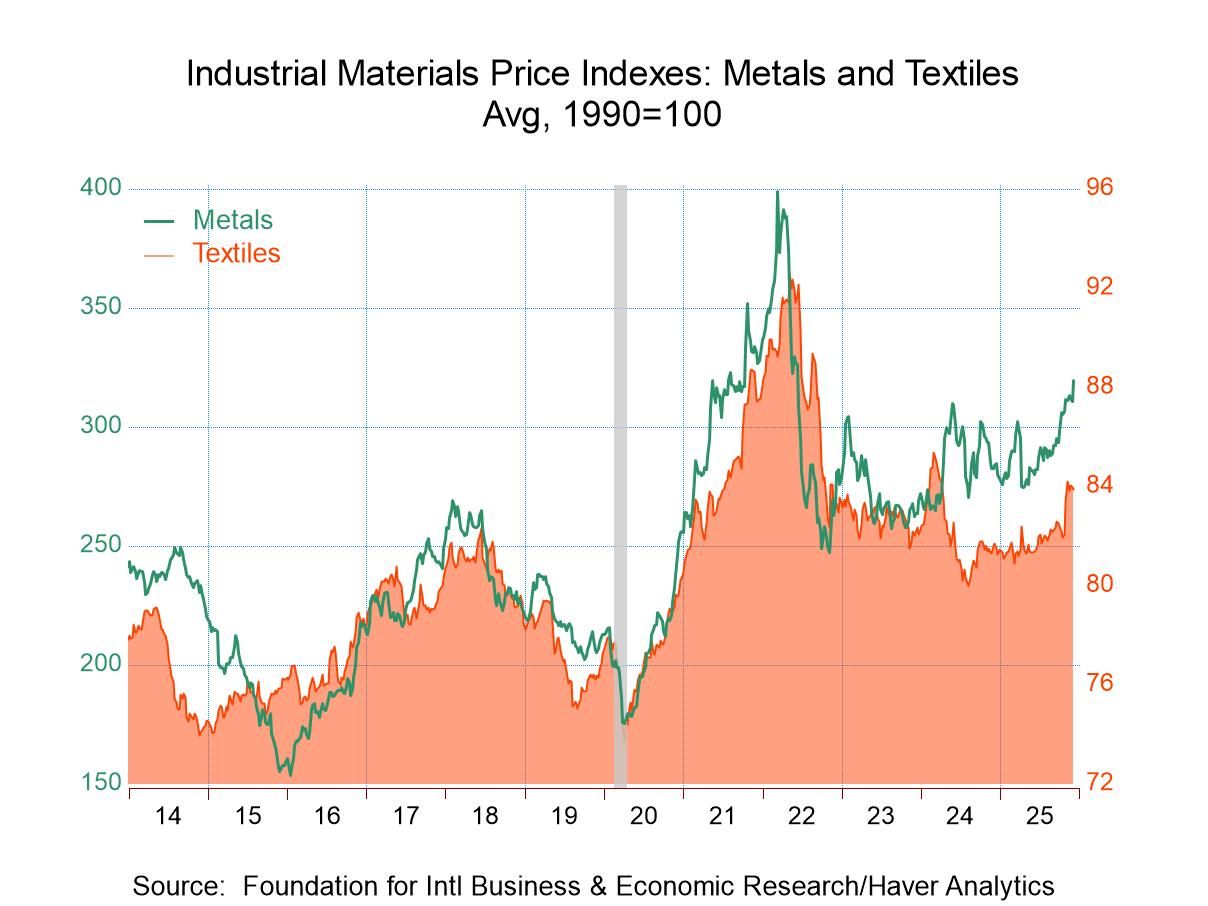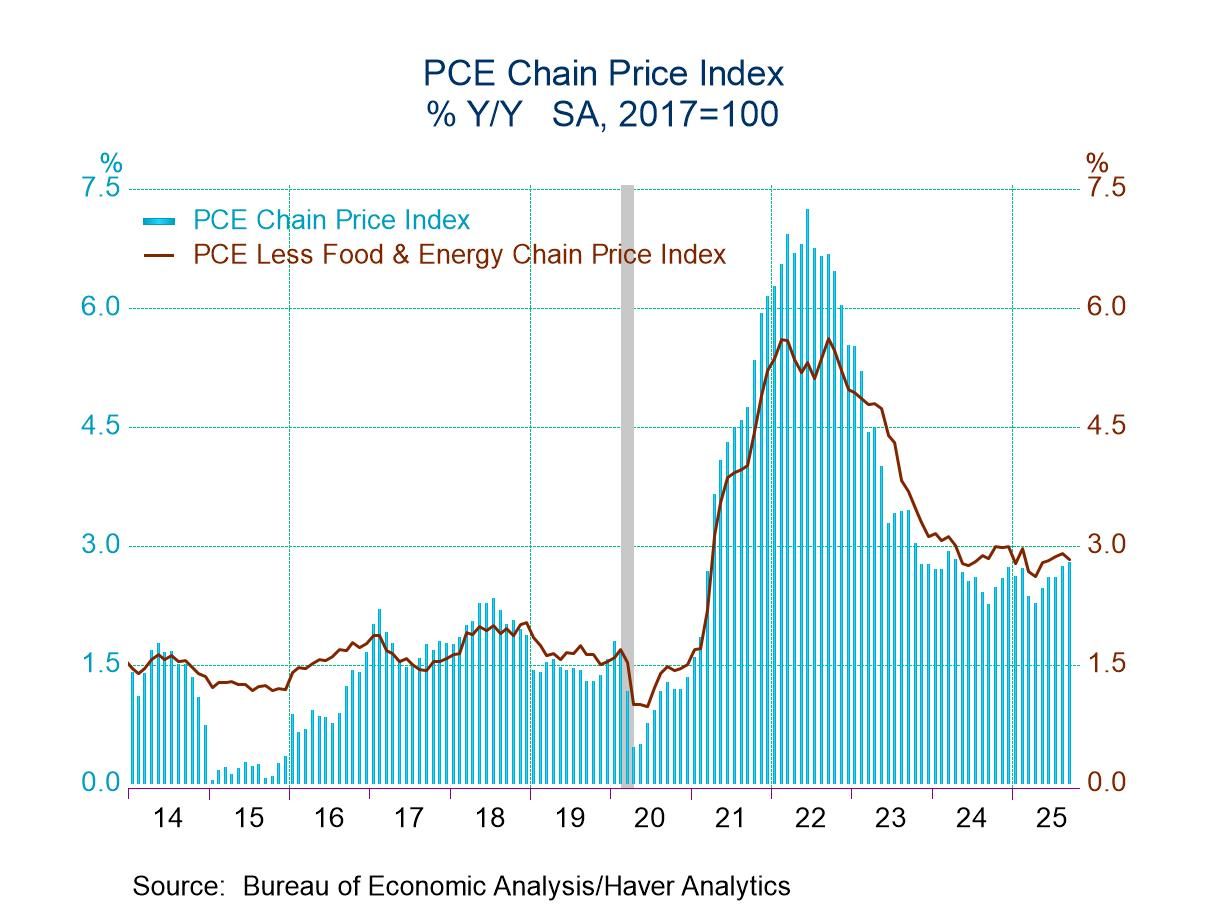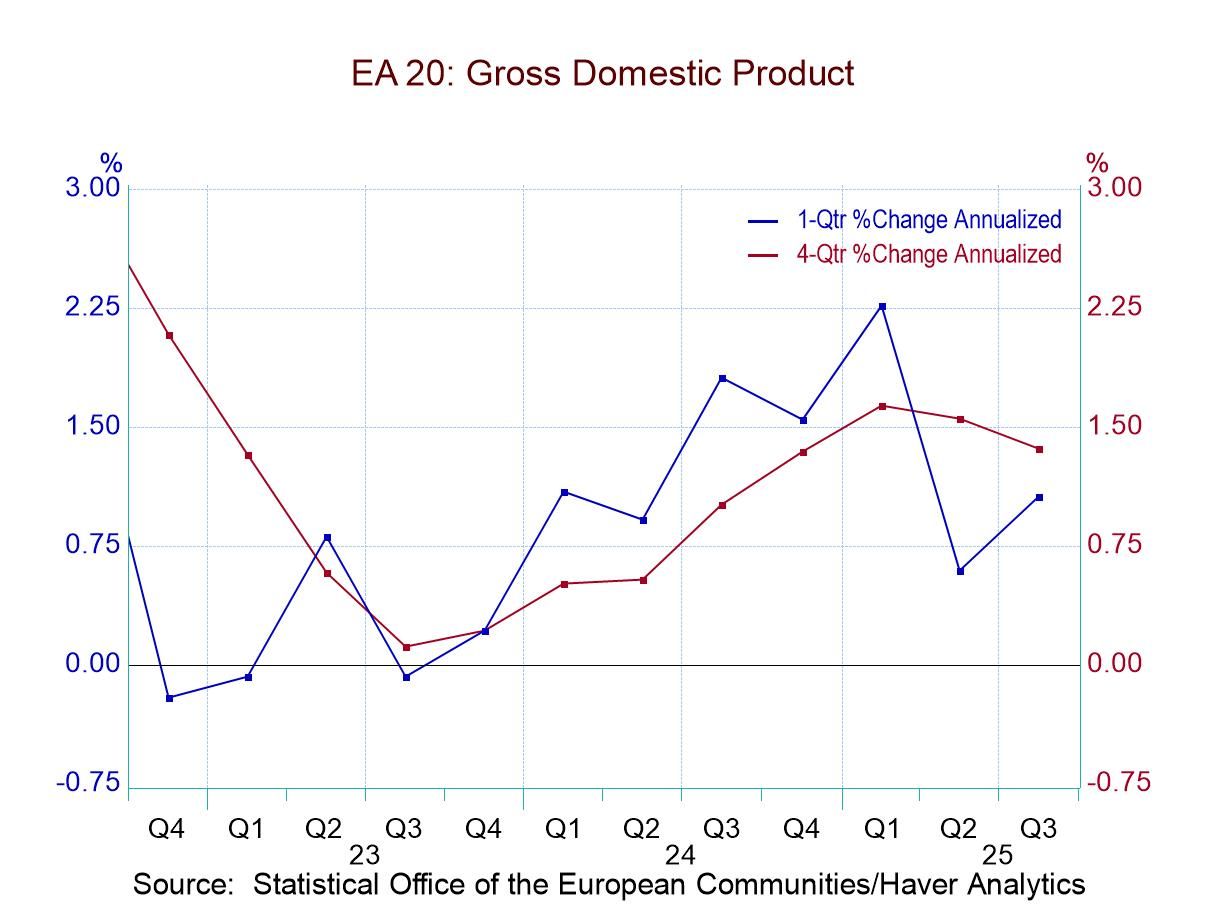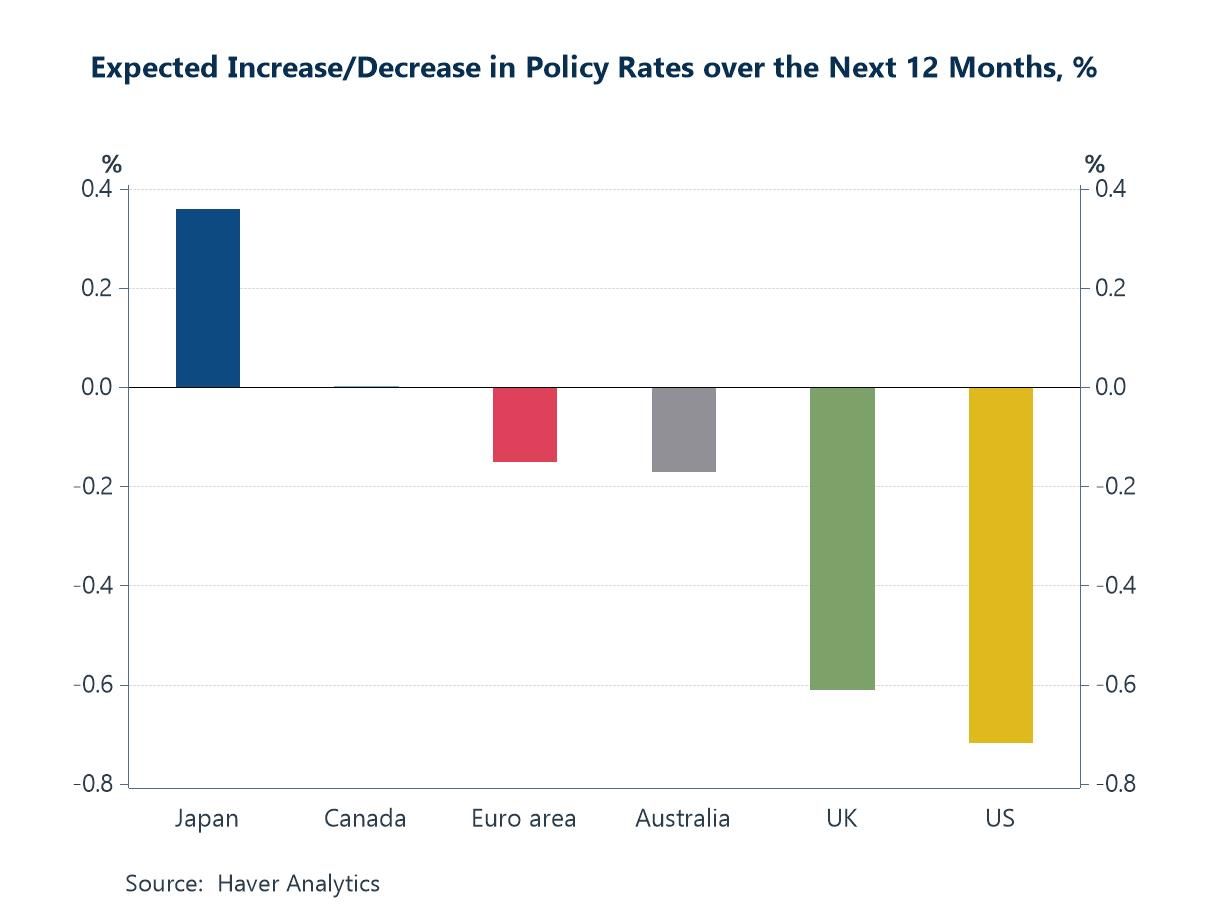 Global| Nov 25 2019
Global| Nov 25 2019Texas Factory Sector Activity and Pricing Power Diminish
by:Tom Moeller
|in:Economy in Brief
Summary
The Federal Reserve Bank of Dallas reported in its Texas Manufacturing Outlook Survey that the General Business Activity Index of -1.3 during November compares to October's -5.1. It remained down sharply from the February 2018 high of [...]
The Federal Reserve Bank of Dallas reported in its Texas Manufacturing Outlook Survey that the General Business Activity Index of -1.3 during November compares to October's -5.1. It remained down sharply from the February 2018 high of 38.2. During the last ten years, there has been a 67% correlation between the index level and the q/q change in year GDP. The company outlook measure also was negative at -2.1, the first month below zero since July and weaker than +11.9 in November 2018.
The production measure fell sharply to -2.4, the first negative reading since May 2016. The new orders growth rate index declined further into negative territory with a reading of -9.3. The employment index weakened sharply to the lowest level since late-2016. Shipments, unfilled orders and hours-worked also were below zero. The wages & benefits reading added to these declines and remained in a sharp downward trend indicating weakened growth. The level of 21.1 compared to a high of 33.8 in August of last year.
Price measures deteriorated as well. The finished goods prices received index fell to 1.9 and reversed most of October's increase, remaining below the June 2018 high of 26.2. The prices paid index for raw materials also weakened.
The index of expected business conditions in six months showed improved prospects for activity overall. It increased to 7.3, the highest level in six months and improved from the negative readings recorded a few months ago. Future hours-worked rose sharply and production improved slightly, but there was weakness elsewhere in the report. Expected shipments, new orders, employment and capital spending intentions weakened.
Each index is calculated by subtracting the percentage reporting a decrease from the percentage reporting an increase. When all firms report rising activity, an index will register 100. An index will register -100 when all firms report a decrease. An index will be zero when the number of firms reporting an increase or decrease is equal. Items may not add up to 100% because of rounding. Data for the Texas Manufacturing Outlook can be found in Haver's SURVEYS database.
| Texas Manufacturing Outlook Survey (SA, % Balance) | Nov | Oct | Sep | Nov'18 | 2018 | 2017 | 2016 |
|---|---|---|---|---|---|---|---|
| Current General Business Activity Index | -1.3 | -5.1 | 1.5 | 16.1 | 25.8 | 20.6 | -8.9 |
| Production | -2.4 | 4.5 | 13.9 | 7.7 | 21.4 | 20.2 | 2.4 |
| Growth Rate of New Orders | -9.3 | -5.9 | 4.4 | 4.7 | 14.8 | 11.4 | -7.3 |
| Employment | 0.9 | 11.0 | 18.8 | 15.5 | 20.0 | 11.4 | -4.9 |
| Wages & Benefits | 21.1 | 22.2 | 17.4 | 24.8 | 29.7 | 22.2 | 17.6 |
| Prices Received for Finished Goods | 1.9 | 4.8 | 1.0 | 7.2 | 17.6 | 12.7 | -1.6 |
| General Business Activity Index Expected in Six Months | 7.3 | 2.4 | -6.8 | 24.1 | 31.6 | 34.5 | 8.9 |
| Production | 31.3 | 29.6 | 25.4 | 53.6 | 48.5 | 46.8 | 35.8 |
| Growth Rate of New Orders | 19.3 | 26.1 | 18.8 | 31.7 | 35.9 | 37.7 | 24.3 |
| Employment | 20.6 | 23.6 | 15.9 | 41.4 | 37.6 | 35.2 | 16.7 |
| Wages & Benefits | 36.5 | 39.0 | 35.6 | 44.3 | 50.4 | 43.4 | 34.9 |
Tom Moeller
AuthorMore in Author Profile »Prior to joining Haver Analytics in 2000, Mr. Moeller worked as the Economist at Chancellor Capital Management from 1985 to 1999. There, he developed comprehensive economic forecasts and interpreted economic data for equity and fixed income portfolio managers. Also at Chancellor, Mr. Moeller worked as an equity analyst and was responsible for researching and rating companies in the economically sensitive automobile and housing industries for investment in Chancellor’s equity portfolio. Prior to joining Chancellor, Mr. Moeller was an Economist at Citibank from 1979 to 1984. He also analyzed pricing behavior in the metals industry for the Council on Wage and Price Stability in Washington, D.C. In 1999, Mr. Moeller received the award for most accurate forecast from the Forecasters' Club of New York. From 1990 to 1992 he was President of the New York Association for Business Economists. Mr. Moeller earned an M.B.A. in Finance from Fordham University, where he graduated in 1987. He holds a Bachelor of Arts in Economics from George Washington University.



